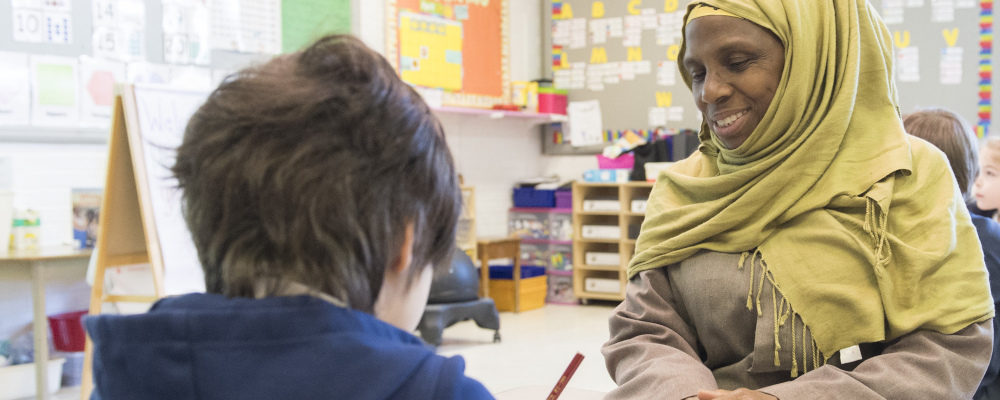American news keeps dominating—excuse me, “making”—headlines in Canada. I guess this is nothing new, but given the sheer volume of watershed Supreme Court decisions in recent weeks, an all-too-critical issue risks getting lost in the wave of coverage.
The school funding debate has received new life this summer with both the Arizona Legislature passing the most expansive school choice law in American history and the U.S. Supreme Court ruling that taxpayer funds for independent schools cannot discriminate based on religion.
Cue the outrage. One side claims the “wall” of separation of church and state has fallen and is stoking fears of a “predatory market” emerging in education.1GOP plan to expand school vouchers to all 1.1 million Arizona students clears House https://www.azmirror.com/2022/06/22/gop-plan-to-expand-school-vouchers-to-all-1-1-million-arizona-students-clears-house/ The other is calling these “anti-wokeness” measures. But despite predictable rhetoric from radicals in both Democrat and Republican camps, important nuance has been missed in the news coverage that bears important lessons for Canada.
Let’s start with Carson v. Makin,2Carson, as Parent and Next Friend of O. C., Et Al. V. Makin https://www.supremecourt.gov/opinions/21pdf/20-1088_dbfi.pdf which began as a challenge in Maine and warrants a bit of explanation.
Some of Maine’s rural-area school districts don’t have high schools. As the Maine constitution calls for “free” (taxpayer-funded) public education for all school-age children, districts without high schools provide tuition assistance for students at another public or independent school their parents select. There’s just one catch: the school cannot provide religious instruction.
On June 21, the Court ruled (6-3) that this is discrimination against religion. A state cannot disqualify an independent school from receiving taxpayer funds solely because it is religious, as to do so is to penalize the free exercise of religion.
Importantly, the decision requires the State to remain neutral. Since parents direct the funds, they’re the ones taking positions on religious matters, not the State.
Predictably, a tired boogeyman was conjured up. “This Court continues to dismantle the wall of separation between church and state,” wrote Justice Sotomayor in her dissent.
But consider the other two dissenters. Justices Breyer and Kagan wrote that the U.S. is “a Nation with well over 100 different religious groups, from Free Will Baptist to African Methodist, Buddhist to Humanist…[with] a vast array of beliefs, ideals, and philosophies.” That leads to an important question: how can such a vast plurality of religions be combined, with any credibility, into “the church” that must be separate from the state? A boogeyman divided against itself cannot stand. Arguing that it’s a violation of the separation of church and state to spend a school voucher on a religious school makes about as much sense as arguing that spending part of a social assistance cheque on a religious charity is also “dismantling” that great wall!
Let’s not forget that Justices Breyer and Kagan raised the issue of religious pluralism in the context that “state neutrality with respect to religion is particularly important” because their particular concern was religious strife. In Arizona, amid the red-hot hyperbole, folks are really asking about social strife and separation.
Evidence from sound research can help us turn down the temperature of the debate. They can also help us answer related questions Canadians are sometimes afraid to ask. How do we educate for the common good? How can our education systems meet the concerns of cohesion while honouring our differences?
The answer is more educational pluralism, not less. There’s a lot of research on this. The bottom-line: Independent schools—including religious ones—strengthen social cohesion.
A recent survey of the academic literature finds that, after controlling for family background, the evidence overwhelmingly dispels fears of independent schools’ negative effect on civic life.3Good Schools, Good Citizens: Do Independent Schools Contribute to Civic Formation? https://www.cardus.ca/research/education/reports/good-schools-good-citizens/ In fact, independent-school attendance actually enhances political knowledge and tolerance, civic engagement, and civic skills. Of the 34 credible studies on independent and state schools’ effects on civic outcomes, there are 86 separate statistically significant findings. Of those, 50 findings reveal a clear independent-school advantage, 33 find neutral effects, and only three show a state-school advantage.
In other words, independent schools—most of which are religious—are considerably more likely to enhance the civic capabilities of young people and lead, eventually, to a more civically integrated and politically engaged public.
Although such myth-busting may be unpopular with ideologues, any parent of two or more kids sees just how different each child is. No two students are the same. Not everyone learns the same way. Not everyone fits in everywhere. As in nature, different plants require different soil, nutrients, temperature, water, and sunlight. It’s similar with children. Kids are not raw inputs for the assembly line, but unique gardens to be nourished.
And the research bears this out. When a student’s religious beliefs match those of her school, her grades rise—considerably. A recent Cardus study finds that matched students significantly outperform their unmatched peers in reading and math.4A Good Fit: How Matching Students and Schools by Religion Improves Academic Outcomes https://www.cardus.ca/research/education/reports/a-good-fit/ This is after controlling for all other factors. In other words, the “good fit”, in and of itself, significantly increases a student’s ability to learn and retain knowledge—even in a subject like mathematics.
By the way, most of the world already understands this. In fact, the norm is for governments to publicly fund independent schools, including religious ones, to varying degrees. Spain, Sweden, Switzerland, Slovakia, Slovenia, Singapore, and every province west of Ontario are all examples.
Given that religious independent schools contribute to the common good, serve the public interest by strengthening civility and social cohesion, and also greatly improve the reading and math abilities of religious students, why wouldn’t we all be supportive? It is a win-win to let parents use the education dollars allocated for their children in the school where they can best thrive.




